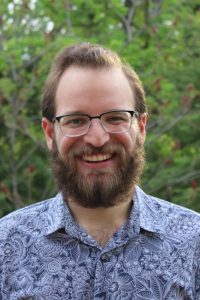
Ethan Shapiro
Sociology/Psychology, 3rd year student
CONTACT: ethandshapiro@gmail.com
KEYWORDS: New Age Spirituality, Colonialism, Intertemporal Connectedness, Symbolic Immortality, Terror Management
Describe your project in a few lines
Colonial injustices are increasingly problematized in mainstream cultural discourses, prompting settler populations to engage in the dissonant process of ‘historical soul-searching’: coming to terms with the colonial past and one’s complicity in contemporary colonialism. My project examined how settler-descendants use New Age spirituality to resolve these dissonances surrounding identity and purpose in postcolonial society. By identifying with ‘ancestral’ pre-colonial religions, white New Agers can diminish the existential threats posed by emergent historical understandings while negating the possibility of political
What made you interested in this topic?
My upbringing in suburban Toronto was characteristically Canadian, permeated by historical amnesia around questions of land, Indigeneity, and colonialism. Once I learned about my town’s Indigenous history, including the expropriation of Anishinaabe land, I began to question how I benefit from colonial relations. Soon after, I picked up a copy of Ancient Spirit Rising by Pegi Eyers, which argued that white settlers must reclaim ancient European eco-spiritualities to redress colonial and ecological injustices. Dr. Jennifer Cowe’s WRDS 150 section enabled me to view this issue critically, underscoring that how we remember our pasts has grave implications for how we understand and act in the present moment.
What kind of research did you do for this paper?
My research combined sociological accounts of New Age spirituality and spiritual commodification with the psychological literature on religion and meaning maintenance. I also examined digital materials published by key figures and organizations within New Age movements, including Reclaiming (a neo-pagan ‘community’ rooted in feminism, environmentalism, and pre-colonial witchcraft tradition) and one of its founding members, Starhawk.
What advice would you give to students who are beginning their research in WRDS150?
Find a question that keeps you up at night. My best research questions have come from personal experience, whether by critically investigating seemingly ‘trivial’ aspects of everyday life or by challenging my taken-for-granted habits and tastes. While many students are often told to remain objective and disinterested in their research, acknowledging research as a profoundly personal endeavour can allow you to be more honest with your findings and generate original, meaningful questions.
What are you working on now?
Recently, I have been looking at how and why hipster taste emerged in neoliberal global North societies, focusing on occupational shifts from traditional middle-class employment to culture-based self-employment. You can read more about this research in the forthcoming volume of Sojourners Undergraduate Journal of Sociology. I am also in the early stages of designing an honours project that will examine Vancouver’s burgeoning craft beer scene from brewers’ perspectives.